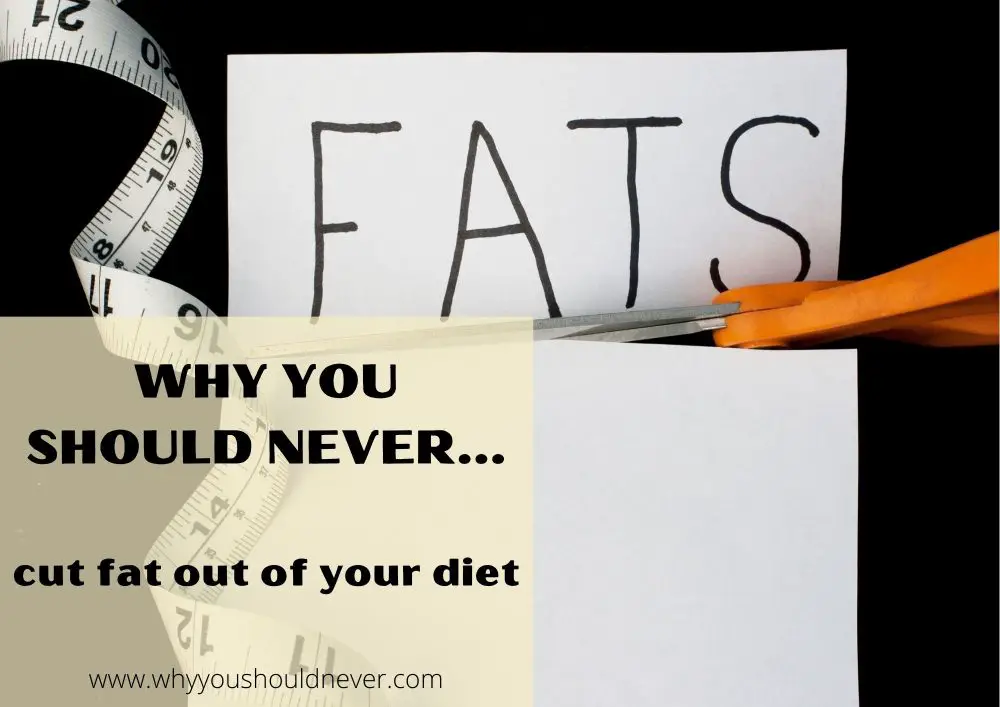![]()
Why You Should Never Cut Fat Out Of Your Diet
The idea that fat is bad for you has been around for a long time. It continues to be demonized as the root of all evil.
This is not true! Fat is actually a major part of your diet and should be consumed in moderation. Cutting it out of your diet can actually be harmful to your health.
Whether you’re trying to lose weight or trying to adopt a healthier lifestyle, removing fat from your diet completely isn’t the right approach.
Here we’ll discuss some of the reasons why you shouldn’t cut fat from your diet.
Fatigue
Eating a diet with little to no fat can lead to fatigue. This is because your body needs the right amount of healthy fats for energy.
Fat affects brain function, mood and behavior in addition to physical activity levels. Cutting out this nutrient will make you feel sluggish or tired even when well-rested.
If you do not eat fat, this can interfere with your ability to exercise and do everyday things, as your body lacks the necessary fuel – i.e. fat – to burn.
Blood Sugar
A diet low in fat can cause an increase in blood sugar levels due to the fact that you’ll be more hungry throughout the day, and thus seek foods high in carbohydrates and sugar. This in turn will cause your blood sugar levels to spike.
While radical changes in blood sugar levels are especially dangerous for diabetics, it can affect everyone. You may experience severe cravings, headaches, and other symptoms.
Cholesterol
Eating the right fats – monounsaturated and polyunsaturated – can actually help lower your cholesterol levels and thus reduce your risk of heart problems.
These fats are distinguished from the saturated fats, which are harmful and will raise your cholesterol levels.
Good fats come from things like vegetable and nut oils, avocados, and oily fish.
Hormones
Fat is needed to make and regulate estrogen, testosterone and progesterone in both men and women. These hormones in turn affect everything from fertility, weight loss and muscle growth/maintenance.
Vitamins
Fat contains certain vitamins that your body needs in order to function properly. These are vitamins A, D, E and K. They’re considered to be fat-soluble vitamins; unlike water-soluble vitamins, these don’t dissolve in water but in fat.
These vitamins stay in your body fat and are activated when you need them. Without fat, they won’t dissolve and you won’t reap the benefits therein. Not getting these important nutrients will put you at greater risk of developing problems like osteoporosis, impaired vision, or breast cancer.
Brain function
Finally, without fat in your diet you’re depriving your brain of the building blocks it needs to function. In fact, a lack of essential fatty acids can affect not only cognitive ability but also mood and behavior.
Without essential fatty acids (EFAs) – which are found mainly in oils and animal foods – cognitive function will be impaired.
Alternatives to removing fat from your diet entirely
If you’re trying to lose weight, the answer isn’t to completely exclude fat but to replace your intake of harmful, saturated fats with healthy, unsaturated fats. This means cutting out processed foods, dairy products and certain animal fats.
Other ways to regulate your weight and improve your health would be to reduce the amount of sugar you consume. Sugar produces carbohydrates,which are known to pile on the pounds.
To maintain a healthy lifestyle, you should focus on a balanced, nutritious diet. Regular exercise should be part of your everyday life.
